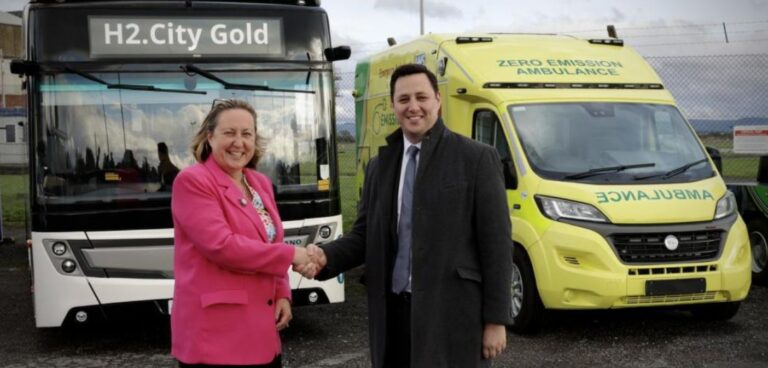The UK government has announced that Tees Valley will host its new £20m competition, which will be run by its own agency Innovate UK, to support research into new and innovative solutions around how hydrogen can be used for cleaner and more efficient transport.
Hydrogen, when used as a fuel, releases no carbon emissions. Considering its potential use for supporting the decarbonisation of the transport sector, the Hydrogen Transport Hub competition was established to encourage growth and innovation for hydrogen-based solutions.
Read more: BP announces major green hydrogen project in Teesside
The contest invites businesses and research groups to collaborate on research around how hydrogen can be used as a renewable source of energy. Some potential uses include cleaning up delivery emissions and supporting improved air quality in our cities.
The competition seeks to address challenges, such as large-scale refuelling, developing greener public transport modes and improving the environmental impact of global supply chains.
What’s more, it is hoped that the competition will enable mass production of low-carbon hydrogen, which could cut national reliance on imported fossil fuels.
Another £300,000 was also announced to support upskilling the local workforce and foster a specialised skills base and pipeline of talent in Tees Valley and the development of a greener local economy.
Anne-Marie Trevelyan, transport secretary, said: “Climate change is one of the biggest challenges this generation faces, and with transport contributing 24% to the UK’s CO2 levels, we are working hard to change things now and for the future.
“Tees Valley continues to be the beacon for hydrogen technologies and will be further supported by £20 million going to the best and the brightest ideas that will create a world-leading industry with more skilled jobs in the heart of the north of England.”
This new funding represents the hub’s largest competition launch to date.
This year’s prior competition saw £2.6m awarded to various winners for the development of 21 hydrogen-based vehicles.





